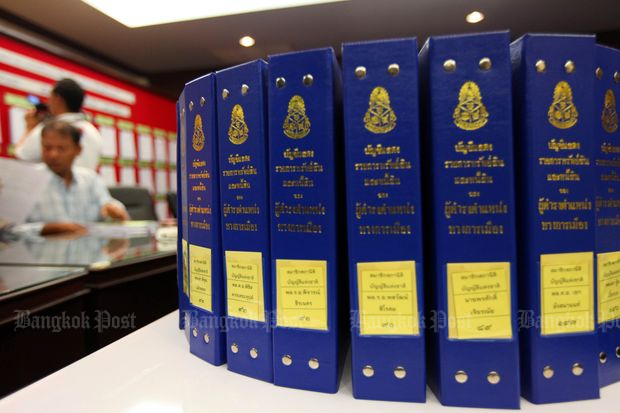
The National Anti-Corruption Commission (NACC) is expected to revise its expanded asset-declaration rules after being alerted to potential legal complications by Deputy Prime Minister Wissanu Krea-ngam.
The current asset-declaration rules apply to politicians and high-ranking civil servants but the NACC believed it was time to broaden the fight against corruption.
Existing members of university councils reacted strongly to the requirement and some even threatened to resign en masse.
They argued the new rule creates an undue burden and risk for them, as well as their spouses and children. The process is also very complicated and if they fail to file asset lists properly, they could face jail terms later, they said.
They also argued that they do not receive any salary from the public purse, only allowances of around 2,000 baht per meeting, which usually takes place once a month.
Mr Wissanu said on Saturday that the requirement for university councillors would also apply to the Supreme Patriarch, who is the president of the council of Mahamakut Buddhist University, the highest educational institution for monks.
“The NACC agreed that there are reasons he should not be required to declare assets,” Mr Wissanu said.
“For acting positions, such as that of Lt Gen Sansern Kaewkamnerd, who is acting director-general of the Public Relations Department, the NACC told me he did not need to declare assets.”
The NACC issued its recent order based on the NACC law, drafted by the 2017 constitution writers. The three groups that would have to declare assets are holders of political positions, high-ranking civil servants, and other state officials to be defined by the NACC.
The last group has turned out to be the most controversial as the NACC has included all positions in public organisations, university councillors and board members who may have influence over an organisation or unit.
Supporters of the rule argued that although university councillors do not receive salaries, they choose rectors and vice-rectors who are responsible for budgets allocated by the government. The councils also approve state budgets in some cases.
Universities are allocated budgets ranging between 300 million and 4 billion baht each per year. In addition, some are allowed to earn other revenue up to 10 billion baht and run savings cooperatives with assets of up to 40 billion baht.
Meechai Ruchuphan, who headed the committee that drafted the 2017 constitution and the NACC law, is a member of two university councils.
Mr Wissanu said Mr Meechai was among those who were looking to resign before the rule took effect on Dec 2 as his terms would end in January.
“There are several university councillors who will quit like him because they want to avoid the burden,” Mr Wissanu said.